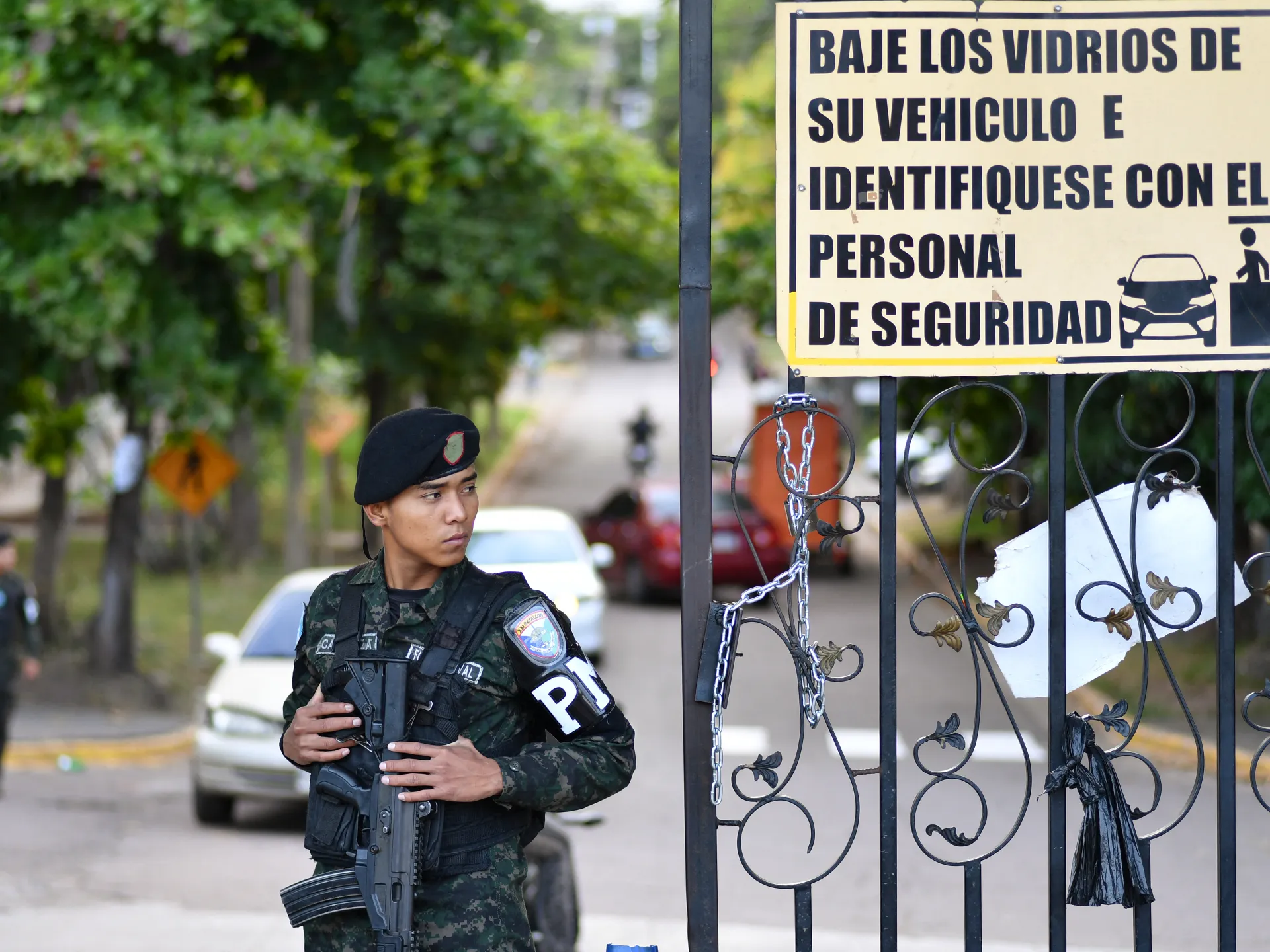Honduras election official says ‘disturbances’ preventing vote recount | Elections News
Statement comes as regional body says no evidence of fraud in November vote that Trump-backed candidate Asfura leads.
Published On 15 Dec 2025
The head of Honduras’s National Electoral Council (CNE) has decried acts preventing the ongoing recount of the Central American country’s presidential election, as a regional body said there was no reason to suspect fraud in the November 30 vote.
Ana Paola Hall’s statement on Monday came amid ongoing protests and unrest over the unresolved election. Nasry Asfura, a right-wing businessman publicly supported by US President Donald Trump, has held a razor-thin lead over his top opponent, Salvador Nasralla.
Recommended Stories
list of 3 itemsend of list
At least 99 percent of votes have already been counted, but CNE has said that nearly 2,800 ballots will need to be re-examined through a special recount.
In a post on X, Hall said disturbances seen in the country’s capital, Tegucigalpa, have “prevented the necessary conditions for the special recount to begin”.
Observers have said infighting at the CNE, which is run by three officials each representing one of the major political parties, has delayed reaching the final results.
Both Nasralla, a conservative, and outgoing left-wing President Xiomara Castro have alleged vote tampering, although several international missions have dismissed the claims.
On Monday, the Organization of American States (OAS), a regional body, said that despite a lack of expertise in overseeing the election, there was not “any evidence that would cast doubt on the results”.
The OAS mission “urgently calls on the electoral authorities to immediately begin the special recount and to explore all possible ways to obtain the official results as quickly as possible,” OAS official Eladio Loizaga said in a report he read to the group’s members.
“The current delay in processing and publishing the results is not justifiable,” he said in the report.
The OAS statement added that its mission of 101 observers from 19 countries “did not observe any malice or obvious manipulation of the electoral materials or computer systems”. The finding was in line with that of a parallel European Union mission.
The election in Honduras had been in turmoil even before polls opened, with several major parties, political figures, and foreign interference for months casting doubt on the election’s integrity.
The most prominent scandal involved an investigation by the attorney general into a member of Asfura’s National Party for allegedly discussing plans with a military officer to influence the vote.
The candidate for outgoing President Castro’s LIBRE party, Rixi Moncada, later told Reuters news agency that the alleged conspiracy proved the election was “the most rigged in history”.
Several candidates have also criticised the influence of Trump, who endorsed Asfura in the final stretch of the race and vowed to withhold US funding if his candidate did not win.
The US president also pardoned former Honduran President and National Party member Juan Orlando Hernandez, who had been convicted in the US of drug trafficking, two days before the vote.
Authorities in Honduras, a country of about 11 million, subsequently issued a fresh arrest warrant for Hernandez.
